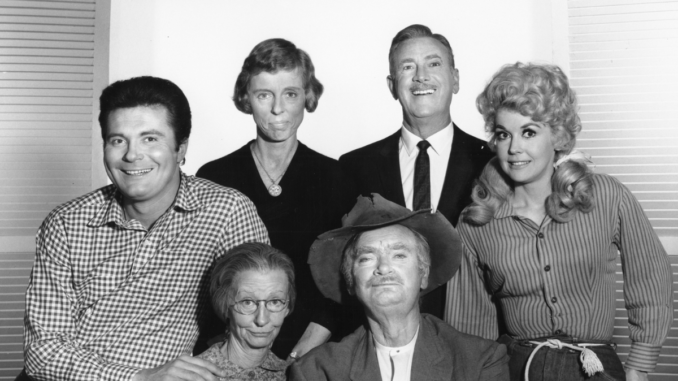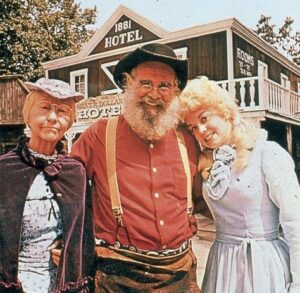
Max Baer Jr. once saved Buddy Ebsen’s life on the set of ”The Beverly Hillbillies”
The actor found himself in a frightful situation after a scene went out of control.
Most of us don’t consider our day jobs a matter of life and death, but one fateful day during the filming of The Beverly Hillbillies, it was.
In his autobiography, The Other Side of Oz, actor Buddy Ebsen recounted a harrowing experience he had during production for the hit television series. He wrote, “In the show, during Jethro’s ‘Double-Naught Spy’ phase, he intelligently installed helicopter blades on the old Hillbilly truck, and with blind faith in the considerations of his conversion, he and I prepared for takeoff in our first test flight.” Viewers may recall that in “Double Naught Jethro”, Jethro, after seeing a spy film, decides to reinvent himself as a secret agent and attempts to convert the family car into one fit for espionage.
Ebsen explained that the truck itself was on hydraulic jacks, which meant that while the blades above them moved, the truck would actually be raised by the hydraulics while the camera kept a tight shot of Jed and Jethro rising, giving the illusion that the car was rising from the ground. However, it was just moments into the first take that things began to go sideways.
Ebsen explained, “The system worked all right until it became apparent that the designer had not cranked in the vibration factor. The whirling blades rocked the truck. At an altitude of twelve feet, they shook the truck’s body right off the jacks.” Ebsen then dove from the car after it began falling toward him. He recalled, “I hit the concrete sound stage floor hard and lay there dazed and befuddled from my crash landing but conscious enough to wonder why the truck hadn’t landed on me.” It turned out Ebsen had someone looking out for him just a few feet away: Max Baer Jr.

Ebsen wrote, “There was Max, sturdy as the Colossus of Rhodes, coolly bracing the truck above me until I was dragged to safety. How he got there so fast I can only guess.” So while we’re sure not every day on the set of The Beverly Hillbillies wasn’t as death-defying as that one, it’s helpful to know that just like the Clampett family, the actors on set were sure to look after one another and , if necessary, protect them from harm.
There are pros and cons of being a co-star in classic television. A pro is that actors gain financial stability, access to upscale resources, a fanbase and more. On the other hand, some fans, producers and directors can hold onto one famous role, and it becomes hard to move on.
This was the case for Max Baer Jr., who starred in Paul Henning’s hit series The Beverly Hillbillies. Baer Jr. played Jethro, the son of Jed Clampett’s cousin Pearl who got a chance to move with the Clampetts to Beverly Hills.
Despite the success of the show and his character, roles became scarce for the actor after the series ended. Baer Jr. was typecast, but he refused to let the role be the end of his career. So, the actor produced and directed several independent productions that earned him a lot of money.
In an interview with The Tampa Tribune in 2000, he revealed how he stayed motivated and fought against failing in the industry.
“Starvation was my motivation,” he told The Tampa Tribune writer John Beifuss during a telephone interview. “I did it for the money, and I did it for the job. I was basically unemployable because all that people knew me as was Jethro, and I realized that if I’m going to work, I will have to do it myself. “
Being the son of a heavyweight boxing champion, fighting against hardships was naturally in his blood. Starting this new creative journey results in Baer Jr. finding a love for filmmaking. In 2000, three of his films, Macon County Line, The McCullohs, and Hometown U.S.A, were released on videotape and DVD.
A company named Anchor Bay Entertainment, one that calls itself “the company for movie lovers,” helped with that process. Although some of the films never reached The Beverly Hillbillies status, they gained more than enough attention for Baer Jr. to continue to live comfortably. The films also stopped typecasting from taking another career away.